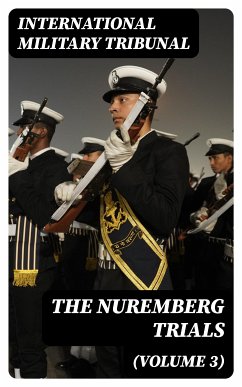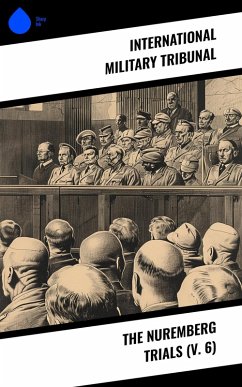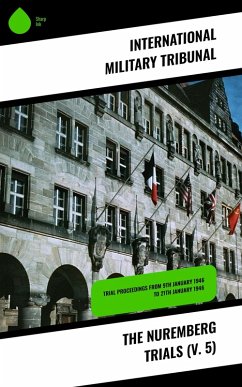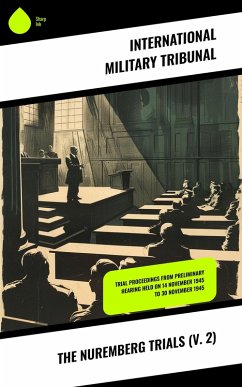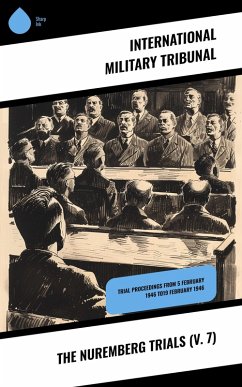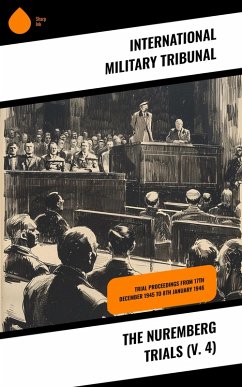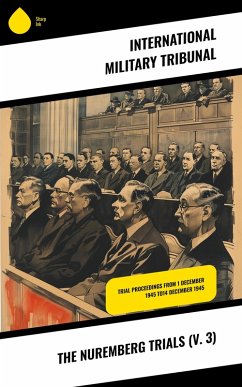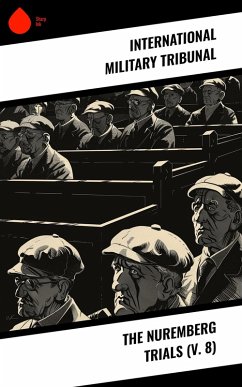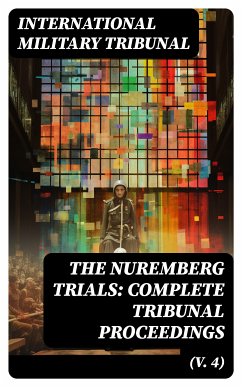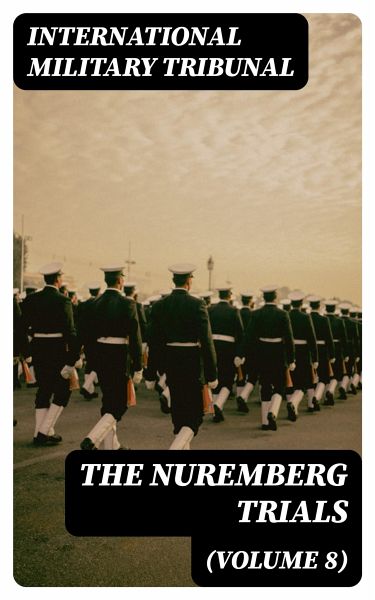
The Nuremberg Trials (Volume 8) (eBook, ePUB)

PAYBACK Punkte
0 °P sammeln!
The Nuremberg Trials (Volume 8) is a pivotal compendium that delves into the groundbreaking proceedings held in the aftermath of World War II, where leading figures of Nazi Germany were held accountable for war crimes. This volume meticulously chronicles the testimonies, legal arguments, and judgments rendered during the trials, presenting a rich tapestry of evidence and moral consideration that galvanized international law and human rights. The literary style is characterized by its thorough and formal documentation, supported by an analytical lens that captures the profound moral complexitie...
The Nuremberg Trials (Volume 8) is a pivotal compendium that delves into the groundbreaking proceedings held in the aftermath of World War II, where leading figures of Nazi Germany were held accountable for war crimes. This volume meticulously chronicles the testimonies, legal arguments, and judgments rendered during the trials, presenting a rich tapestry of evidence and moral consideration that galvanized international law and human rights. The literary style is characterized by its thorough and formal documentation, supported by an analytical lens that captures the profound moral complexities entailed in prosecuting crimes against humanity. Arising from a historical context that necessitated justice and reparation, this volume serves as both a scholarly resource and a powerful narrative of accountability. The International Military Tribunal, composed of judges and prosecutors from the Allied powers, was tasked with this monumental undertaking in 1945-1946. Their determination to address the atrocities of the Holocaust and wartime aggression was fueled by a collective responsibility to ensure that such acts would never go unpunished. This tribunal laid the critical groundwork for contemporary international law, addressing the very philosophical and moral questions surrounding justice in times of war. I highly recommend The Nuremberg Trials (Volume 8) to scholars, historians, and anyone interested in the intersections of law, ethics, and human rights. This volume not only highlights the historical significance of the trials but also serves as a compelling reminder of the need for vigilance in the face of human rights violations. It provides invaluable insights into how global societies reckon with their dark pasts while striving toward a more just future.
Dieser Download kann aus rechtlichen Gründen nur mit Rechnungsadresse in A, B, BG, CY, CZ, D, DK, EW, E, FIN, F, GR, H, IRL, I, LT, L, LR, M, NL, PL, P, R, S, SLO, SK ausgeliefert werden.




